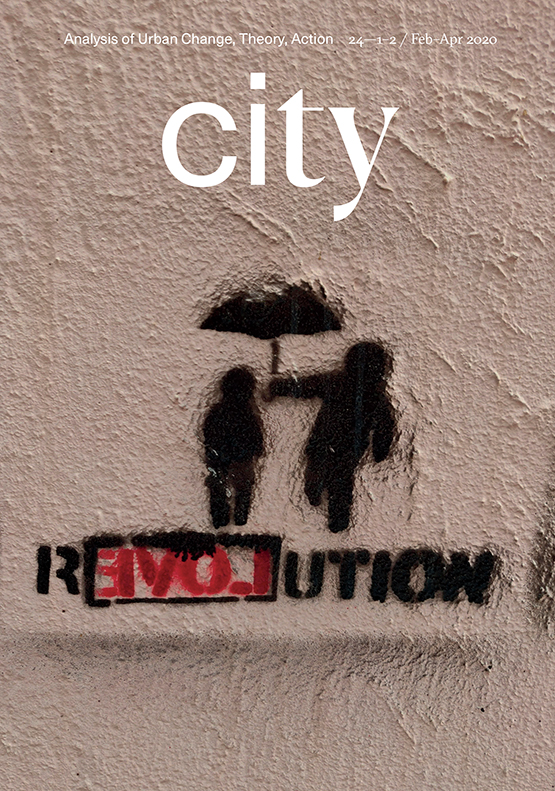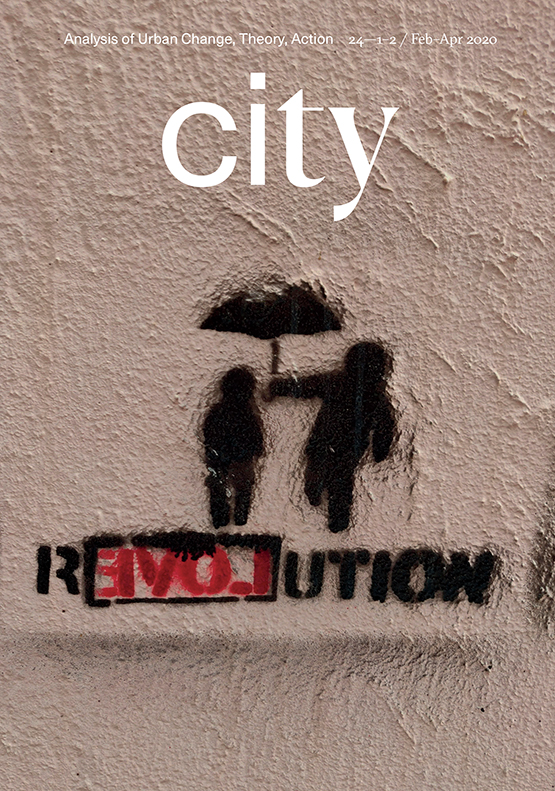Announcing new members of CITY’s editorial board
As part of its commitment to collective leadership and regular renewal of ideas and energy, CITY is happy to welcome three new editors into our editorial board. In June, we asked for recommendations from our Collective as well as putting out an open call for editors. We received over forty applications from enthusiastic scholars around the world. It was a difficult decision, but ultimately we felt three candidates were the right fit for the journal in its current iteration. From the same pool of applicants, we also invited several candidates to join us as members of the wider CITY Collective, an active group in our new editorial structure.
The three new editors are Brandi T. Summers, Lindsay Sawyer and Ulises Moreno-Tabarez. The outgoing editors are Melissa Fernández Arrigoitia and Michele Lancione. Pushpa Arabindoo left the editorial board earlier this year. Melissa and Michele will remain part of the journal collective. They remain committed to the journal and continue to devote time and energy for a smooth transition. Ulises is a CITY Collective member and has served as our social media editor since early 2019; Brandi and Lindsay are both new to CITY. These new editors will join Andrea Gibbons, Anna Richter, Antonis Vradis, David Madden, and Debbie Humphry.
Brandi is an assistant professor of Geography and Global Metropolitan Studies at the University of California, Berkeley. Her research builds on epistemological and methodological insights from cultural and urban geography, urban sociology, African American studies, and media studies by examining the cultural, political, and economic dynamics by which race and space are reimagined and reordered. Her book, Black in Place: The Spatial Aesthetics of Race in a Post-Chocolate City (UNC Press, 2019), explores how aesthetics and race converge to locate or map blackness in Washington, D.C. In it, she demonstrates the way that competing notions of blackness structure efforts to raise capital and develop land in the gentrifying city. Her current book project is an interdisciplinary study that explores the complex ways in which uses of space and placemaking practices inform productions of knowledge and power in Oakland, California.
Lindsay is a research fellow at the Urban Studies and Planning department and a research associate of the Urban Institute at The University of Sheffield. Lindsay’s research is broadly interested in how ordinary, messy and grounded urban realities in Lagos, Nigeria can provincialise, subvert and make more interesting urban theory from anticolonial and comparative perspectives, and the politics and ethics of how to do such research. Her current Leverhulme Trust Early Career Fellowship research project looks at what urban governance means in practice in Lagos, and how different governance configurations involving statutory and customary authorities produce vastly different urbanisms. Lindsay has been part of the collaborative research project ‘Planetary Urbanization in Comparative Perspective’ since 2011 and has co-authored several innovative comparative papers. Lindsay is keen to contribute to CITY’s newly reimagined scope, particularly its openness to southern scholarship.
Ulises is a Postdoctoral Associate in the Department of Geography and Environment at the London School of Economics (LSE). He holds a PhD in Human Geography and Urban Studies from the LSE and an MA in Performance Studies from California State University, Los Angeles. His research further develops what he calls spectral geographies which he defines as spatial poetics of presence and absence in relation to political-economic and cultural lifescapes. He is playing with the notion of what it means to be anti-urban–to counter the dominance of western epistemic deployments of urbanity and to situate its contingent and relational geographies, spectral in their own sense, at the centre of his work. Currently, he lives in the Costa Chica of Guerrero, his home state in Mexico. He is conducting ethnographic research on environmental racism in the Costa Chica of Guerrero and Oaxaca, a region known for its substantial population of Indigenous and Afrodescendant peoples and cultures.
From the pool of applicants, we also invited Bjarke Skærlund Risager, Hara Kouki, Matt Birkinshaw, Myrto Dagkouli Kyriakoglu, Sin Yee Koh, and Yimin Zhao.
Bjarke is an interdisciplinary social movement and urban scholar. His current research focuses on the social, political, and economic processes of gentrification and financialization as well as the contestation of these processes from below and how subjectivity is shaped in this context. His publications include Voices of 1968: Documents from the Global North (2018) among others.
Hara Kouki is an interdisciplinary researcher based in Athens, Greece. Trained as a historian, she is working between sociology, geography, and feminist science. Hara’s research focuses on inequalities in the cities: how people experience them, how they form communities to fight against them, and how they create alternatives
Matt researches urban water governance in South Asia, with wider interests in public and private sector reform, non-state water, technology, groundwater, and historical change. He is currently a post-doctoral research fellow working on community-managed water in Northern Pakistan with Aga Khan University (London).
Myrto is currently a post-doctoral researcher interested in the relation between housing practices, the welfare state and the notion of family. His PhD in Urban Studies at the Gran Sasso Science Institute focused on the interconnections of family housing support with gender, sexual orientation, ethnicity and austerity in Athens, Greece during 2017. Currently, he is based in Malmo University at the Institute of Urban Research investigating disruptive housing trends and platform economy in Sweden and Greece.
Sin Yee is Senior Lecturer in Global Studies at Monash University Malaysia. Her work uses the lens of migration and mobility to understand the circulations of people, capital, and aspirations in and through cities. She is co-editor of Cities and the Super-Rich: Real Estate, Elite Practices and Urban Political Economies (2017, Palgrave Macmillan).
Yimin is Assistant Professor in Urban Planning and Management at Renmin University of China. Trained as a Human Geographer (PhD at the LSE, 2017), he uses urban ethnography to understand power relations and state dynamics in the urban process. His current research develops along two lines of inquiry, one focusing on the urban mechanisms of “Global China” (in collaboration with researchers at the LSE and Monash Malaysia) and the other looking into the infrastructural lives of authoritarianism unfolding in Beijing.
Posted Sept 26, 2020. Debbie Humphry.





